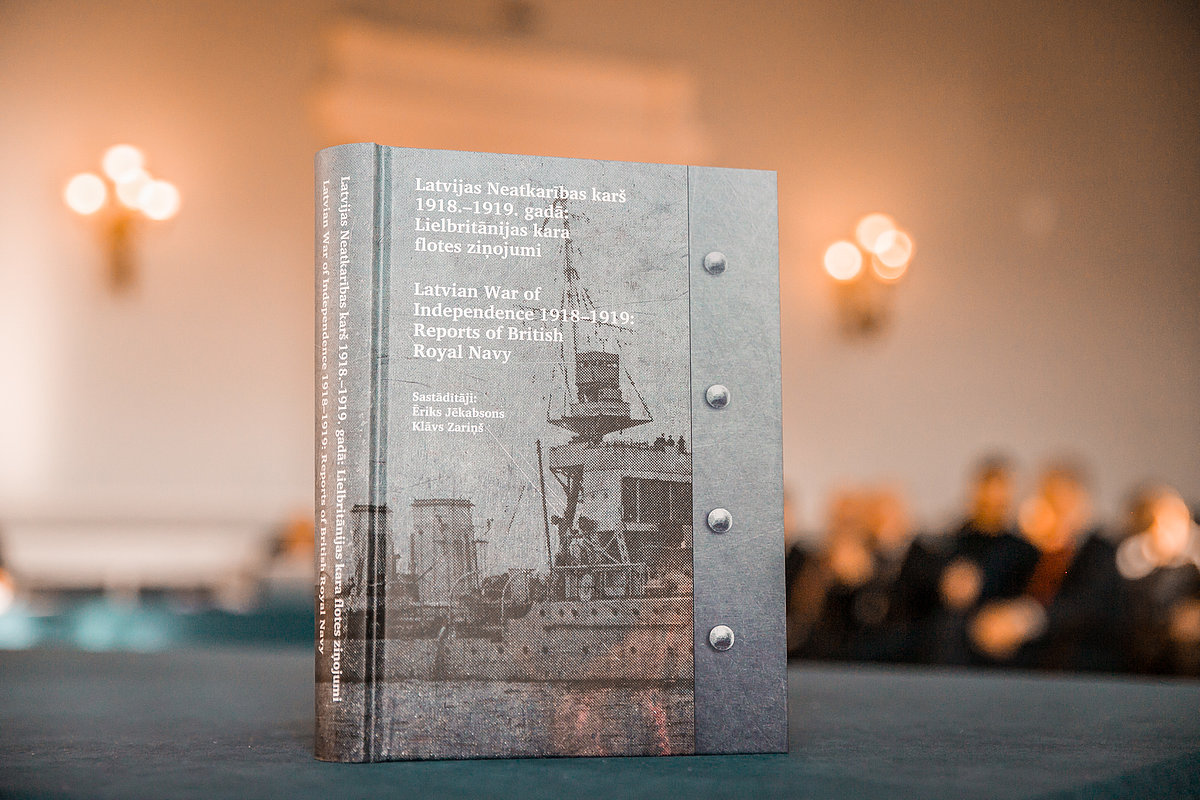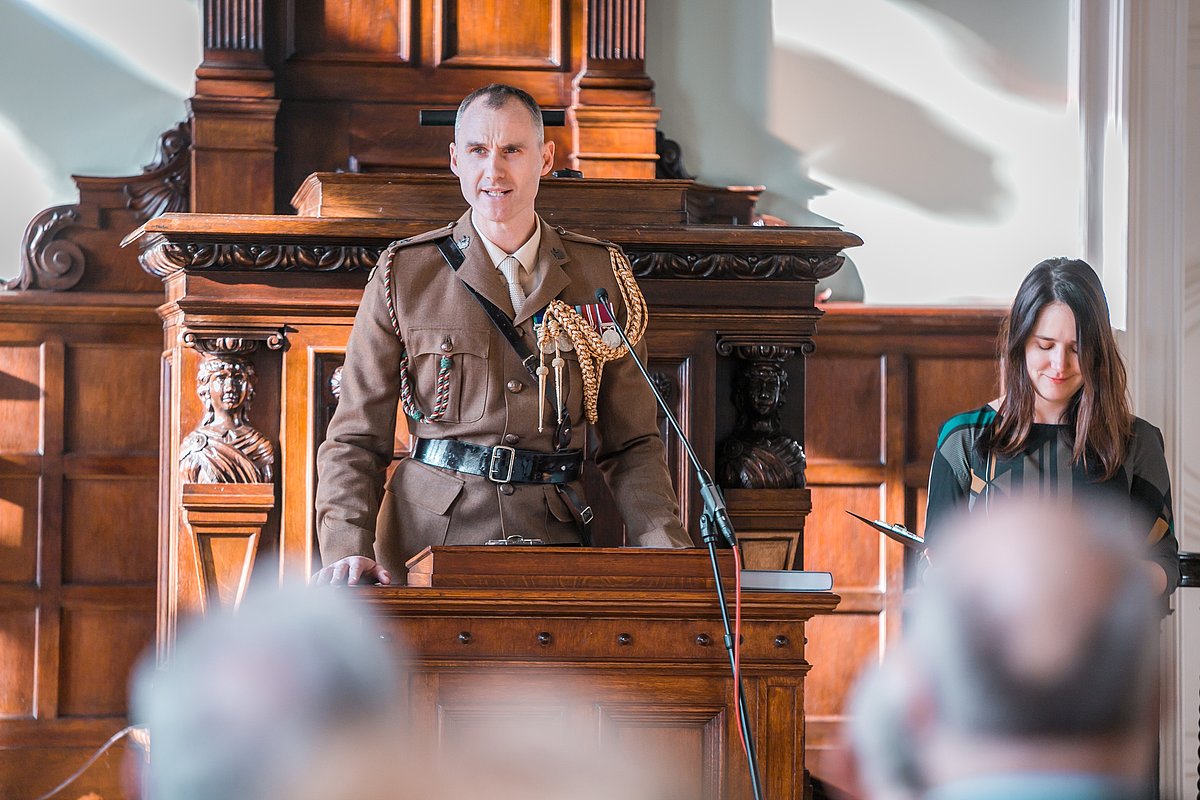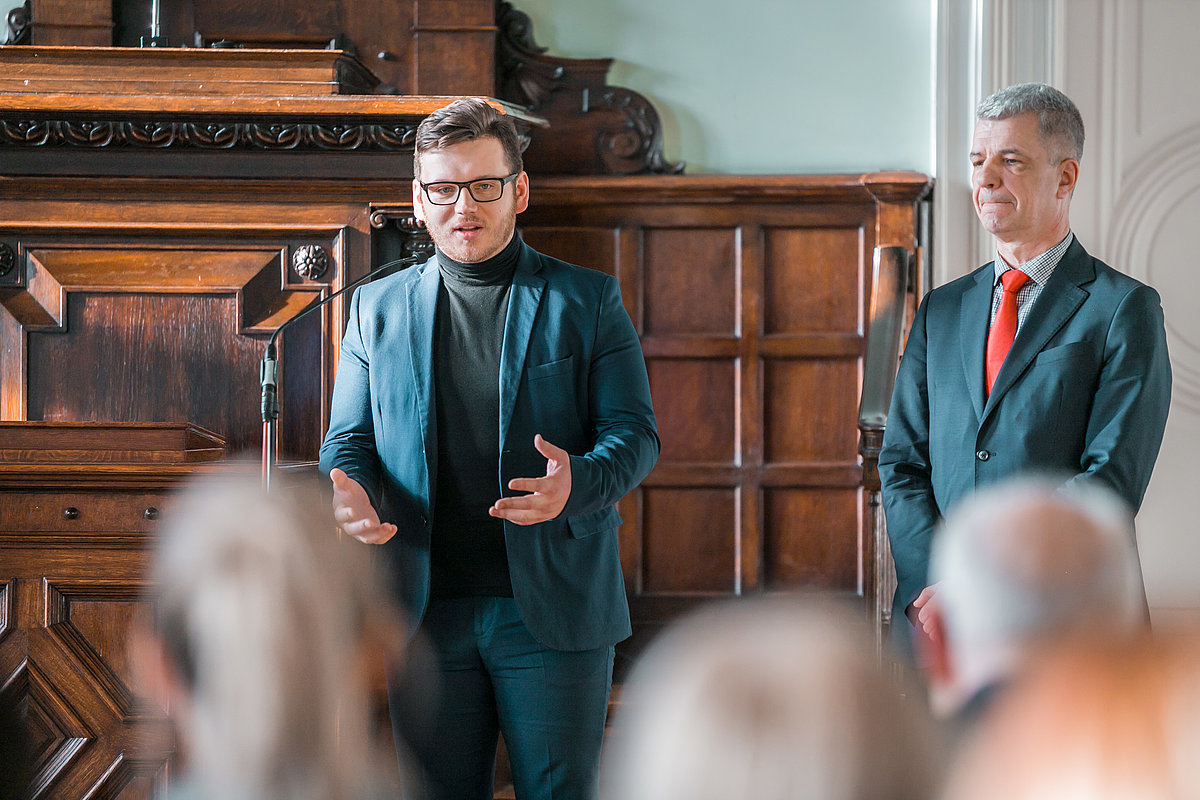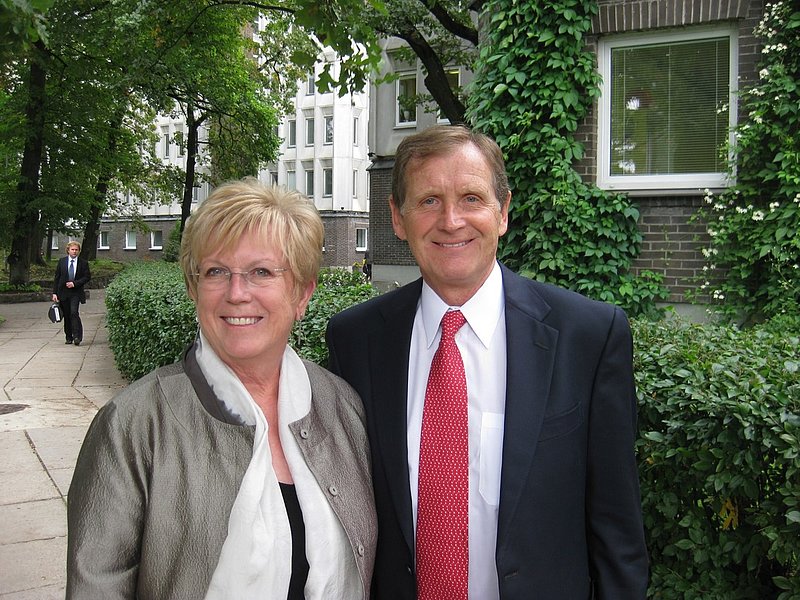
The bilingual book “The Latvian War of Independence 1918–1919: Reports of British Royal Navy” has been compiled by prof. Dr. hist. Ēriks Jēkabsons and PhD student Mg. hist. Klāvs Zariņš, and released after three years of research with support of Richards Zariņš Memorial Foundation and the British Embassy in Latvia. The book tells the story of men and women working toward the most revered goal – independent state of Latvia. Significantly, opening of the volume took place on March 6, the day the commander of the battalion Oskars Kalpaks (1882–1919) passed away during the War of Independence.
The new book describes the difficult geopolitical circumstances that prevailed during the Latvian War of Independence, also called the Freedom Fights or the War of Liberation. For the first time, major documents describing Britain's involvement in the Latvian War of Independence between 1918 and 1920 have been revealed to a wider audience. The content is supplemented with comments and analysis by researchers. British warships reached the Latvia’s coast at the end of 1918, and in the following years they were engaged in various military and political activities in the Baltic region. The book is available at the University of Latvia Press, as well as in the major bookstores.
The author Professor Ēriks Jēkabsons notes that he is delighted to discover something new and points out that there is still a lot to be done by researchers: “There is so much unexplored in Latvia that it will be enough for generations to come.”
Positive synergy emerged between the two authors collaborating on the book. The authors express their gratitude to the patron and the British Ambassador to Latvia, Keith Shannon, who, as a historian, engaged in the project with great enthusiasm and valuable advice. Author’s extend their appreciation also to the entire team of scientific assistants at the UL Faculty of History and Philosophy, the students who helped to digitize the voluminous documents, as well as the employees of the Latvian War Museum who helped in translation work.
Book opening
The opening celebration of the book was attended by the British Defence Attaché, Major Stephen Hayes, who his speech accentuated the importance of loyal partners in those crucial events, and the capacity to do exceptional tasks in exceptional circumstances. This work reflects part of a wide range of activities and events that took place during the period of the Freedom Fights. A lesser-known page in our history has been unveiled, to be comprehended and studied, yielding lessons for today.
Jānis Pleps, Adviser for Constitutional Affairs to President of Latvia, emphasized the words enshrined in the Constitution of the Republic of Latvia: “The people of Latvia won their State in the War of Liberation.” These events need to be further explained, scrutinized and studied, so that the facts are reflected in the historic memory of the society – the period that decided, whether and whereby there is to be the independent state of Latvia. On behalf of President Egils Levits, the authors were granted acclaim and high appreciation of their research. The book provides an opportunity to learn new facts and events related to contribution of Latvia's allies during the War of Independence and to explore this period from their perspective.
Professor, Dr. hist. Gvido Straube explained that those events granted freedom to Latvia, but at the same time the period was associated with great challenges and sacrifices that meant suffering and death of many. “The book is a great insight into the crucial events and experiences of the Freedom Fights,” Straube says.
Chair of the Board of the UL Foundation, Professor Emeritus, Dr. phys. Ivars Lācis pointed out that the newly available analysis of the events opens up the possibility for researchers to develop further scientific publications. Professor Lācis also noted that the book could surprise any reader, because in such a difficult situation the orders were given with open discretion to act in accordance with the circumstances. It is a call to learn from history, to make decisions and act independently. Professor acknowledged the contribution of project’s sponsors, especially the generous support of the Richards Zariņš Memorial Foundation. Its founders are American Latvians Kristaps, Bertrams Zariņš and Antra Zariņš-Trasher, and since 2013 this is the first and, to date, the only support of this kind extended to profound studies of Latvia’s history. Donations are administered by the UL Foundation in cooperation with the public benefit status partner organization “Friends of the University of Latvia”.
In conclusion, Professor, Dr. hist. Aivars Stranga presented a lecture “1919. The year in Latvian history”, chronologically highlighting the most decisive, but also the darkest milestones of that period, which retain their significance even a century later. The professor observed that in academic research one encounters the term “the long 19th century”, referring to the period from 1789 to 1940.

 Academic Centre
Academic Centre

